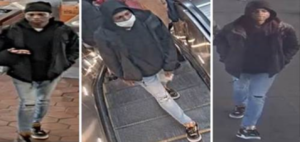John Rizzo Visits CUA and Talks to Students About His Experience in the CIA
By Abby Anderko
The Catholic University Intelligence Club (CUIC) held one of their conversation hours with intelligence professional John Rizzo, veteran CIA lawyer of 34 years on February 7 in the Hannan Auditorium. During Rizzo’s time at the
In pop culture image, intelligence and the alphabet soup of intelligence agencies are portrayed as forms of espionage and saving the world behind the public eye with massive explosions, car chases and fire fights. However, intelligence is more than just spies and catching criminals, and its other sides are shown to students through conversations with intelligence professionals, known as CWIPs. The CUIC is a club on campus that helps students dive into the intelligence profession through interesting field trips and lectures with current or former intelligence personnel.
During his conversation with students, Rizzo spoke about his time at the CIA, and as a lawyer, stressing that the job was not like a typical lawyer who had cases and statutes. As a lawyer for the CIA, he worked on different operations that the CIA ran, where there was more “gray area” to operate, allowing them to be creative and careful about aspects such as covert action and espionage. During his time as in house counsel for the CIA, Rizzo wrote many proposals including the one that later
Rizzo, after graduating from George Washington University Law, began working for the CIA in 1976 not knowing much about the agency but understanding that he wanted to partake in some form of public service. During his time at CIA, Rizzo witnessed many events such as the Iranian Hostage Crisis of the 1980s and the War on Terror after the 9/11 terrorist attacks. Rizzo rose through the ranks, where he was placed in the prominent and high profiled position of acting senior lawyer, putting him as the face of the unprecedented techniques that were being used at the time by CIA and the FBI to attain information from terrorists.
Rizzo in his prominent position, at a time of serious fear and concern over a potential second terror attack on the United States, approved and cleared the operations of what he referred to as “torture methods” to ensure that there would never be another attack, by taking preventative measures.
“Mr. Rizzo provided great insight into the difficult decision to sign off on the enhanced interrogation techniques,” CUIC president, senior Joseph Colucci said, “
Colucci also indicated Rizzo is referred to by the LA Times as, “the most influential career lawyer in CIA history.”
At the end of his discussion, Rizzo affirmed to students that if they were interested in a potential career in intelligence, they should pursue it, because “even when days were bad, they were good.”
CUIC is holding its next CWIP on Monday, February 18th with Dan Klemens discussing how to be an intelligence analyst.








I find it shocking that Rizzo is proud of crafting the justification that enabled the CIA to torture human beings using methods such as “waterboarding” — used by the Catholic Church during the Inquisition. There can be no “grey area” when it comes to upholding human rights. I suggest that CUIC invite Ray McGovern ([email protected]), career intelligence officer under multiple administrations, to speak about what real intelligence work involves and the dangers of abusing power over individuals held in US custody. Better yet, invite Leonce Biyimana ([email protected]), Director of the Torture Abolition and Survivors Support Coalition (TASSC), to speak to you about what torture does to its victims. The TASSC office is right up the road on Harewood Dr at the Capuchin Monastery.